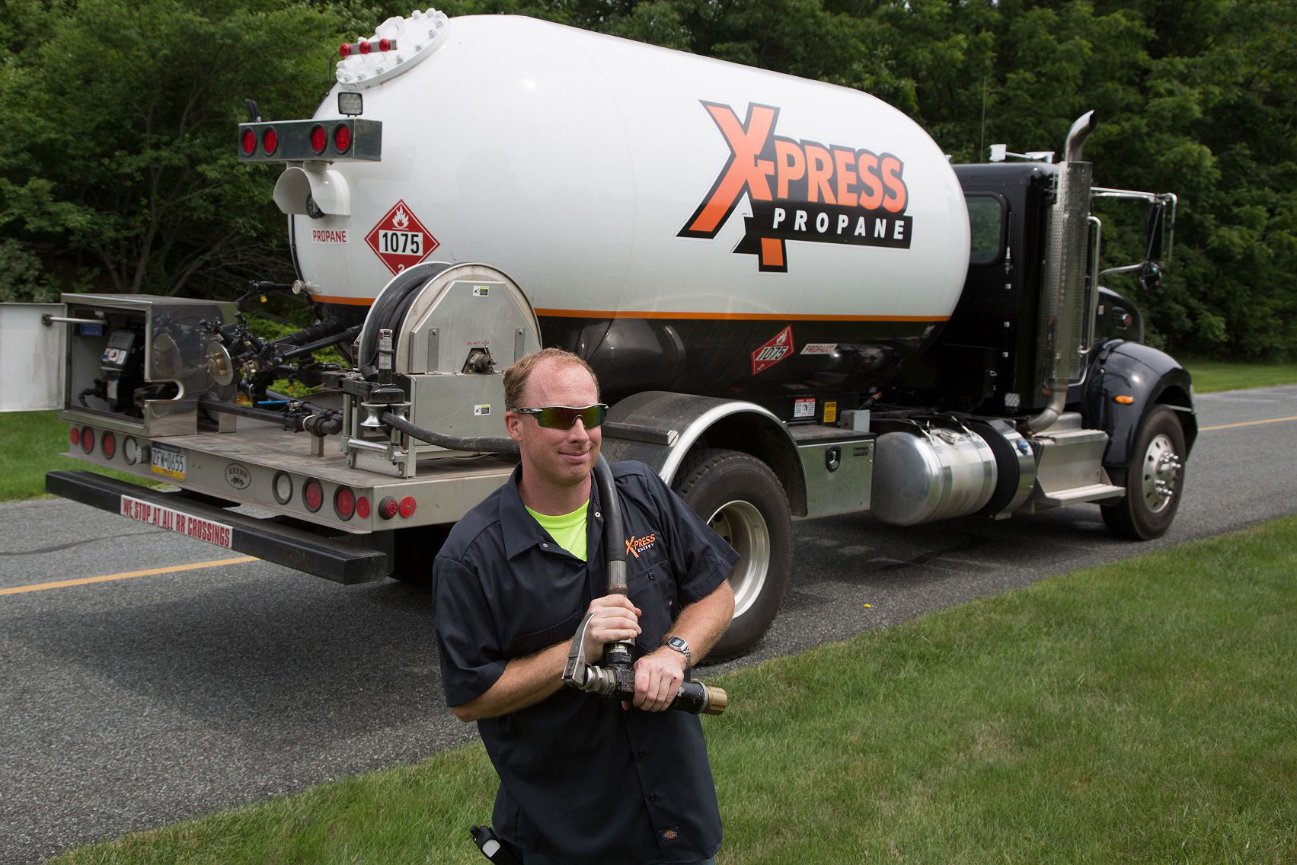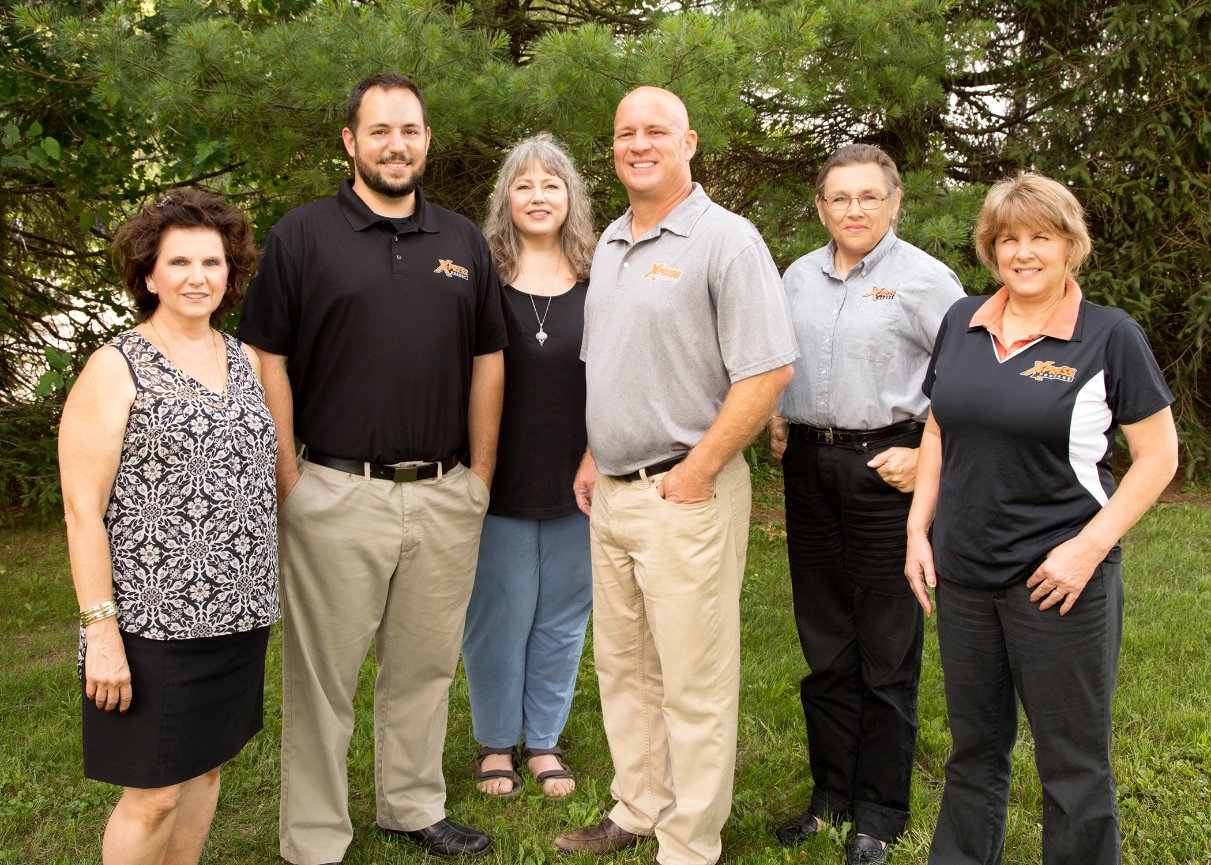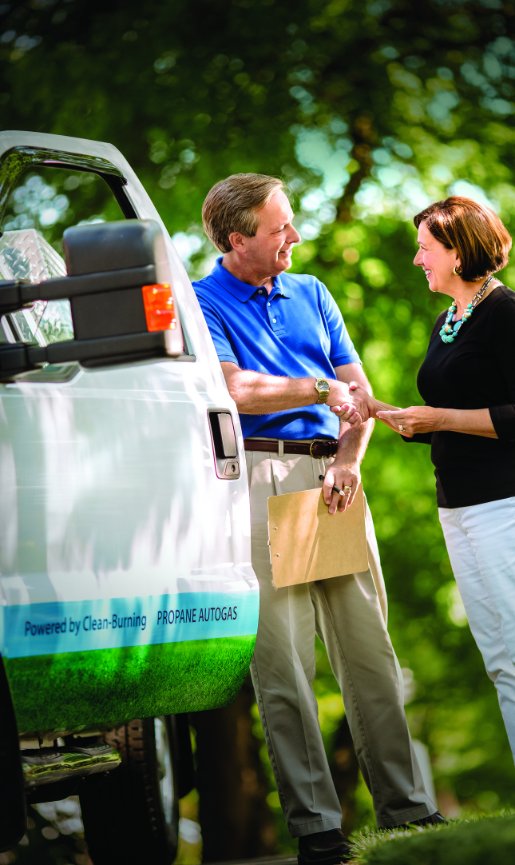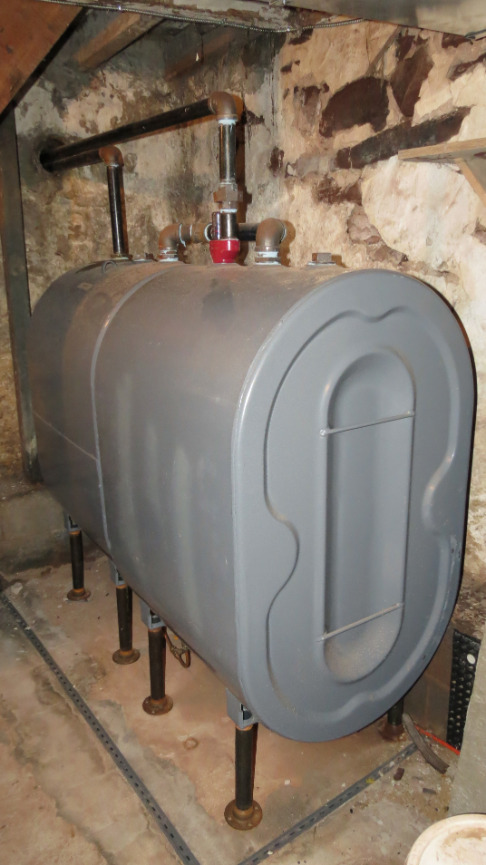A) As a clean, versatile energy source, propane is frequently used for space heating, water heating, cooking, fireplaces, and clothes drying. In outdoor spaces, propane is a widely used energy source for outdoor grills, lighting, and heating for pools and spas. When electric power goes out, propane is often the energy that powers standby generators.
Q) Is propane safe for the environment?A) Yes. Propane is an approved clean alternative fuel listed in the 1990 Clean Air Act. Propane is a nontoxic fuel that doesn’t contaminate aquifers or soil.
Q) Is propane safe for my family and me?
A) Yes. Propane is a very safe fuel. But as with any energy source, there are steps you should take to further ensure your safety:
If you detect a gas leak, immediately evacuate everyone from the house and call your local propane provider or the fire department from a neighbor’s telephone. Learn what propane smells like. Propane retailers print scratch-and-sniff pamphlets to help your family recognize its distinctive odor. Know where gas lines are located, so you won’t damage them when digging or working in the yard. Change or clean furnace filters regularly as recommended by the manufacturer. Don’t store cleaning fluids, oil-soaked rags, gasoline, or other flammable liquids near a gas-burning appliance, where vapors could be ignited by the pilot light.
Q) How can I recognize a propane leak in my home?
A) Propane has a strong, unpleasant smell, like rotten eggs, a skunk’s spray, or a dead animal. Propane manufacturers add the smell deliberately to help alert customers to propane leaks, which can create a safety hazard. You can ask your propane retailer for a demonstration to help everyone in your home or building identify leaks.
Q) What should I do if there’s a problem with a propane appliance?
A) Never modify or repair a propane appliance’s valves, regulators, connectors, controls, or a propane tank’s cylinder or parts. Instead, immediately call your propane retailer or a qualified service technician. They can inspect, adjust, repair, or replace any part of your propane system. Remember, your propane system incorporates special components to keep them safe for use.
Q) What should I do if my pilot light goes out?
A) The Propane Education & Research Council (PERC) recommends that you get in touch with a qualified propane service technician to evaluate the appliance and relight the pilot light, which is a small, constantly burning flame inside the appliance that ignites the main burner. A pilot light that repeatedly goes out — or is difficult to light — may be signaling that there is a problem with the appliance or your propane system. Accidents and serious injuries can occur when customers attempt to fix a pilot light problem on their own.
Q) Can a propane technician convert a natural gas furnace to propane?A) Yes. Many furnaces originally built for natural gas can be converted to propane. For details, get in touch with your nearest propane retailer.
Q) Are there alternatives to having a propane tank in my yard?
A) Yes. Underground storage tanks are a popular option for single-family homes and housing developments. These large tanks can be buried underground because propane is a nontoxic fuel that doesn’t contaminate aquifers or soil.
Q) If I use propane as my primary energy source, what size storage tank do I need?
A) Generally, a 500-gallon tank can hold enough propane to meet the annual energy needs of an average four-bedroom home. Tanks of 1,000 gallons or more may be needed for large homes with swimming pools and hot tubs.
Q) I just moved into my house, now what?
A) Call a professional to inspect your heater, tank and piping.





